Many 16- to 30-year-olds around the world feel their futures have been thrown off track by Covid-19 and are increasingly anxious on.ft.com/36IEgRF 
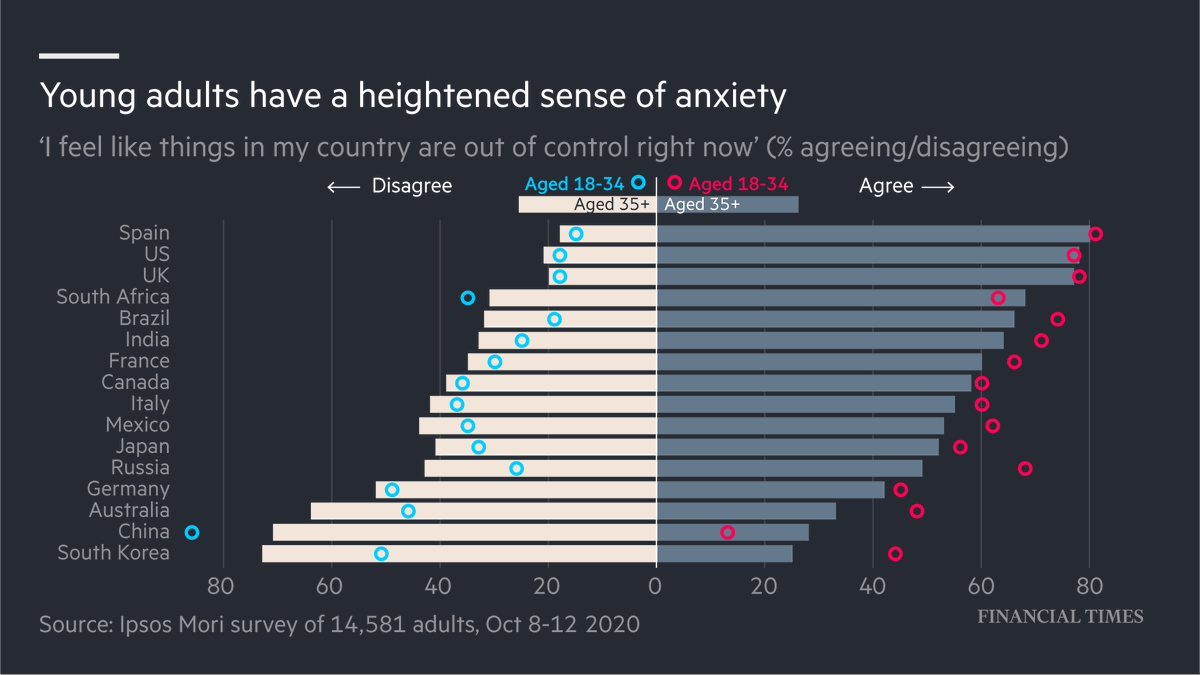
Chief among their concerns is mental health and employment, with about one in six people aged 18-29 likely to have lost their work as a result of Covid-19 ft.com/content/0dec02… 
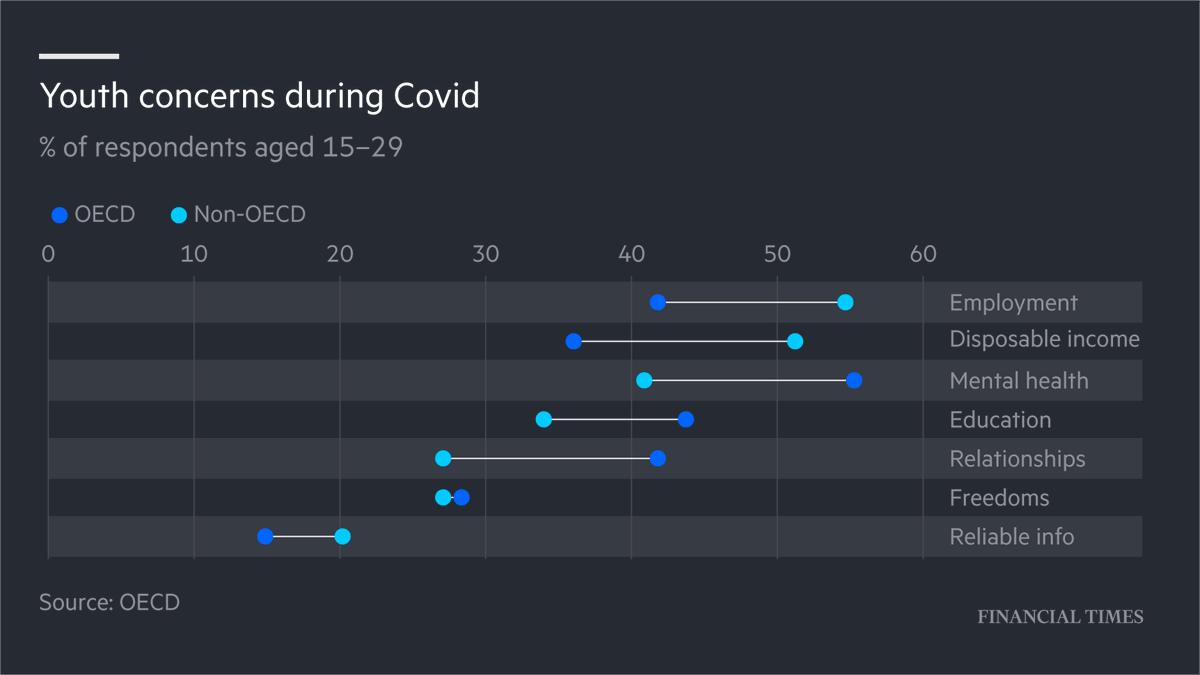
Millions of young adults globally have moved back in with their parents after the virus began to spread. In the US, the share of 18- to 29-year-olds living with their parents is the highest ever recorded ft.com/content/0dec02… 
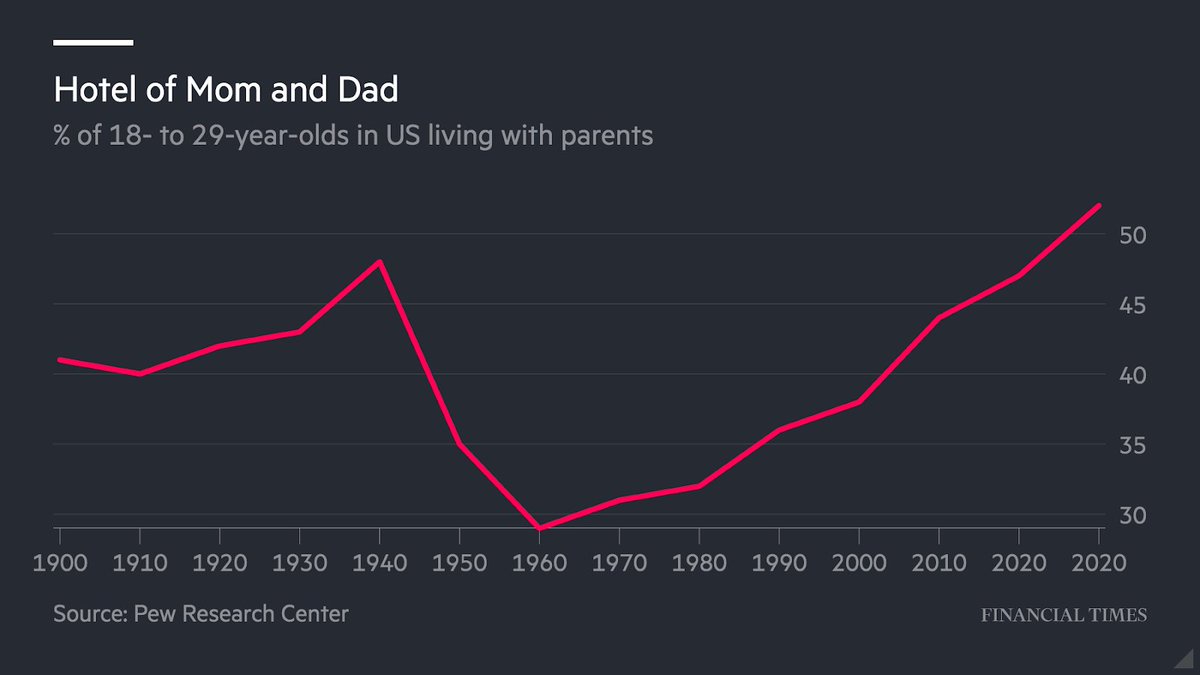
‘Millennials,’ adults born between 1981 and 1996, have the lowest rate of satisfaction with democracy than any other generation, an indication of that cohort’s disillusion with their political institutions ft.com/content/0dec02… 
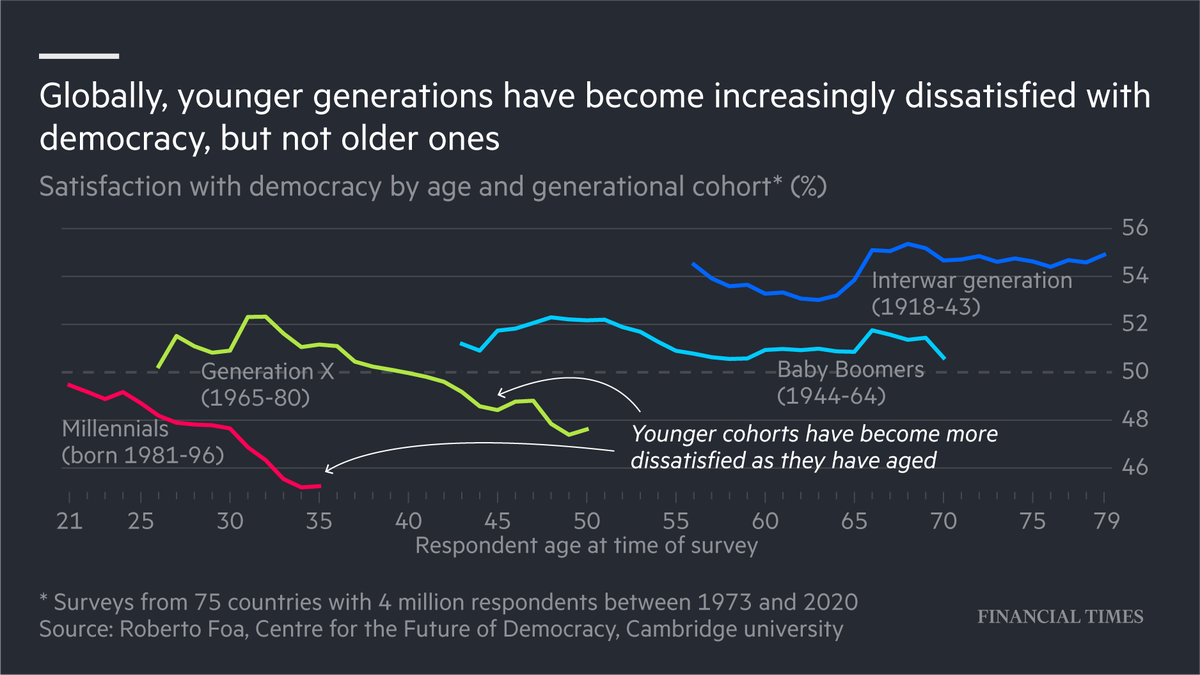
Although less likely to succumb to Covid-19, young people have made up a growing share of hospital patients, adding stress and health difficulties to an already strenuous situation ft.com/content/0dec02… 
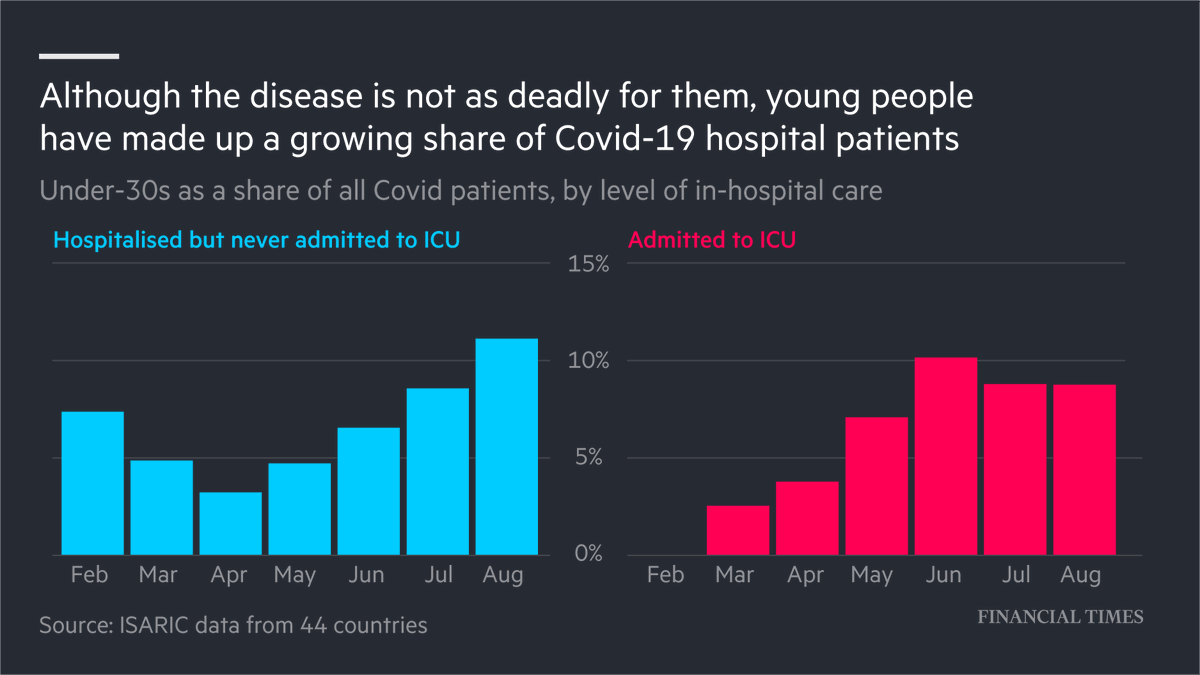
Those aged 18 to 29 are experiencing a higher level of distress compared with other age groups, according to several studies, experts believing that the mental health impact of Covid-19 will far outlast the actual disease ft.com/content/0dec02… 
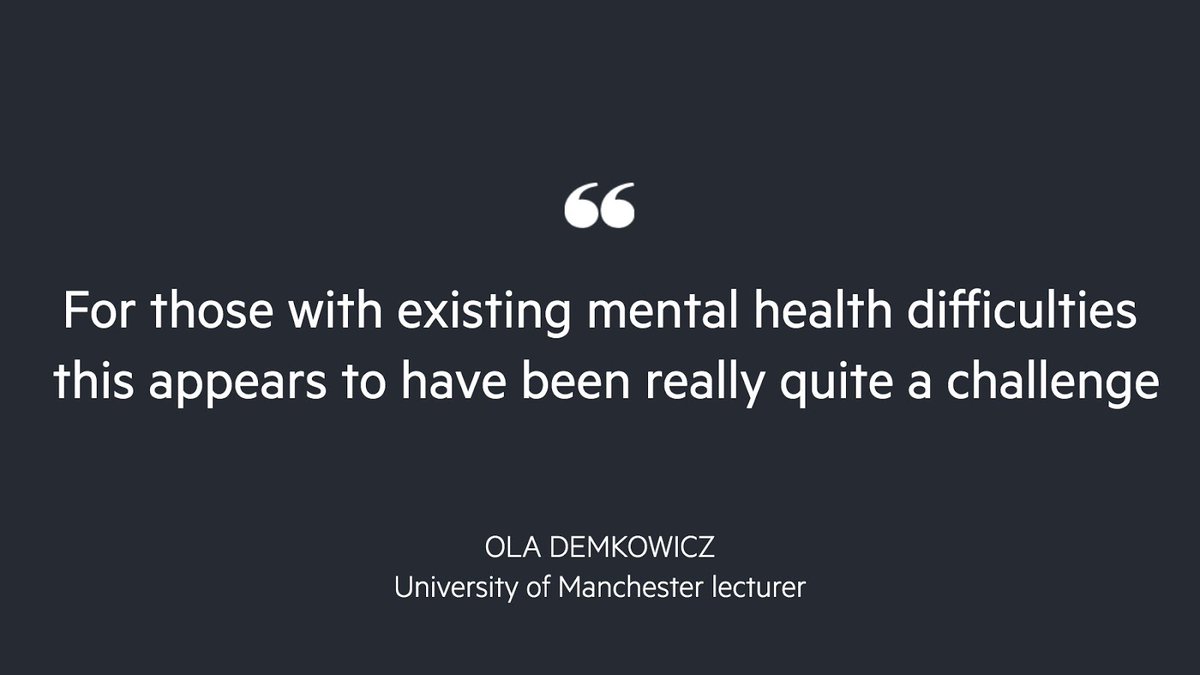
How is the ‘Covid generation’ youth, aged 16 to 30 from around the globe, experiencing this pandemic? Read our analysis from a survey of more than 800 people affected by Covid-19 ft.com/content/0dec02…
• • •
Missing some Tweet in this thread? You can try to
force a refresh
















